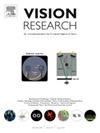Sustaining attention in visuomotor timing is associated with location-based binding
Abstract
Maintaining focus of attention over prolonged periods can be challenging, especially when the target stimulus is absent from the temporal sequence. Prior research has shown that a temporal attentional cue filling in the temporal blank can improve sustained attention: in a sustained visual attention task requiring synchronizing finger tapping with a temporally regular sequence composed of brief flash disks interleaved with blank periods, task performance was improved when a continuous fixation point that served as a temporal attentional cue was presented superimposed on the disk stimulus. To test the hypothesis that binding the temporal attentional cue with the target temporal sequence by spatial overlapping is crucial for enhancing sustained attention, the present study conducted a series of three experiments that deconstructed the bound connection between the cue and the sequence stimulus. In Experiment 1, the cue was placed above or below a flash disk. In Experiment 2, the cue was between two vertically arranged flash disks. In Experiment 3, the cue was in a flash ring. No significant effect of sustained attention improvement was found in any of the three experiments. Experiment 4 further replicated these null results and the previously observed effect of sustained attention improvement when the temporal cue was superimposed on the sequence stimulus. Our finding demonstrates that binding by spatial overlapping during the temporal blank when the sequence stimulus is absent is critical for enhancing sustained attention, which should be beneficial for improving performance across a broader range of tasks that require prolonged maintenance of attention.

 求助内容:
求助内容: 应助结果提醒方式:
应助结果提醒方式:


